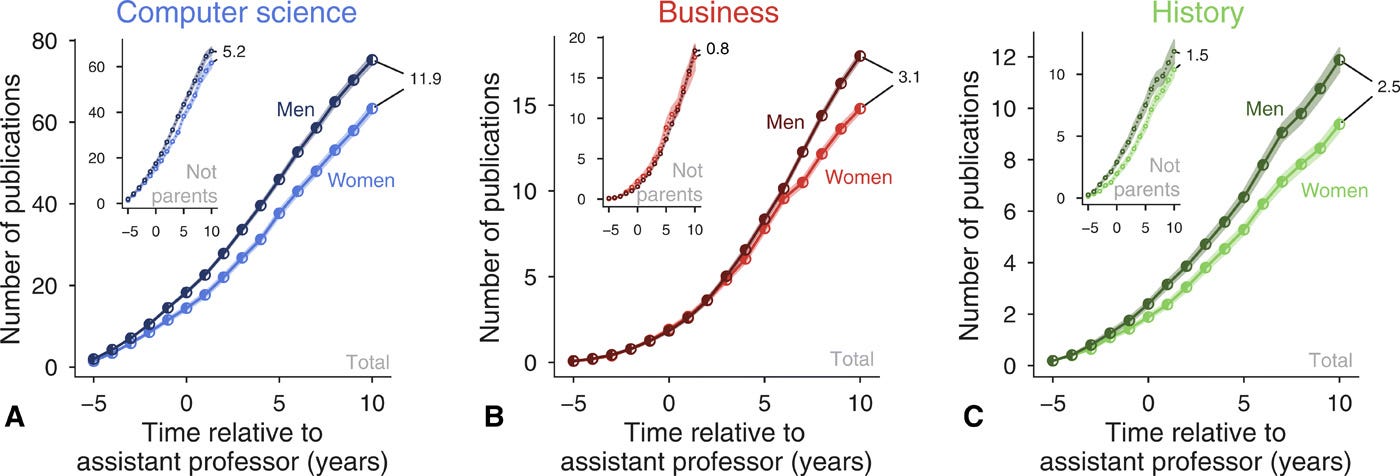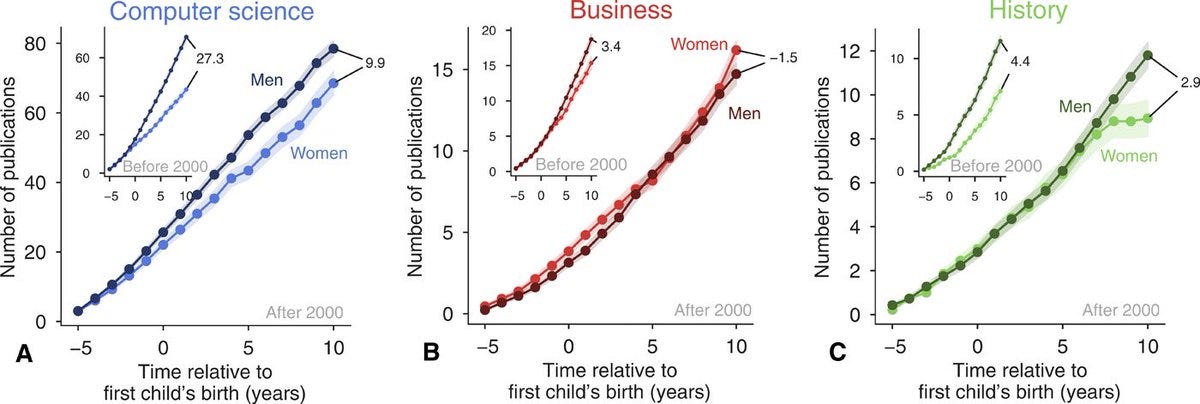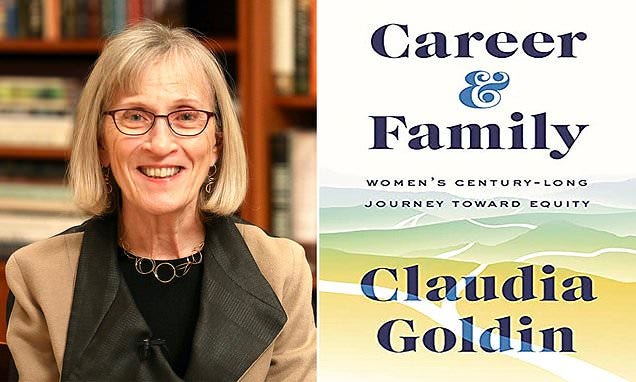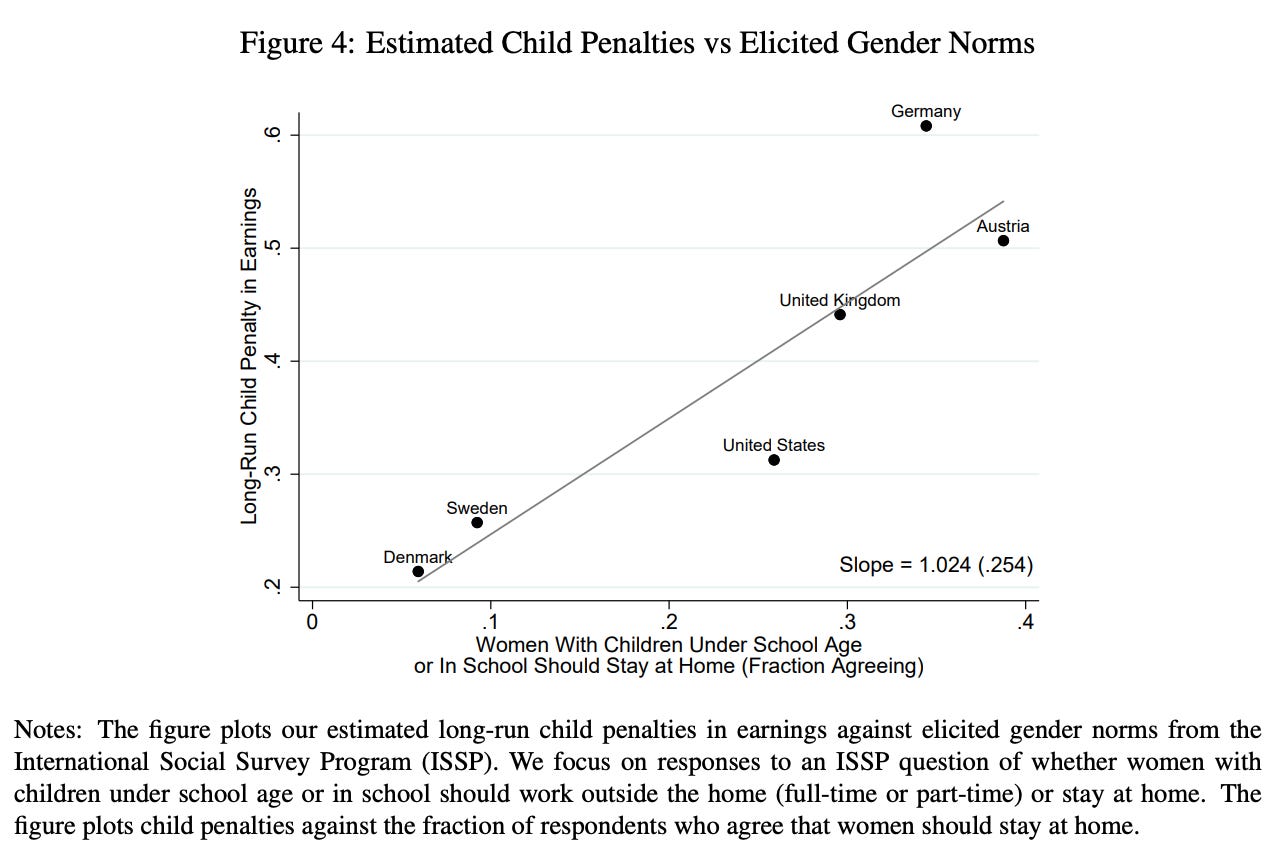The Motherhood Penalty
Academia may be impartial, rewarding productivity, but that is not sufficient for gender equality when mothers bear the lion’s share of childcare.
Controlling for publications, men and women are just as likely to be promoted. Meta-analysis by Ceci, Kahn and Williams shows that academia no longer discriminates. Some men have taken to the Twittersphere to celebrate [implying that women’s complaints are unreasonable]. But this control neglects an important driver of gender inequality: motherhood.
“27% of female assistant professors with children get tenure, compared with
48% of fathers and 46% of other women”. Motherhood - finds Kim and Moser - inhibits both productivity and career progression.
There is no sex difference in academics’ annual productivity.
After childbirth, however, mothers’ annual productivity immediately decreases. Morgan and colleagues (2021) find that ten years after the birth of their child, female computer scientists produce 18 fewer papers than fathers. It would take mothers 5 years to close this gap. This gap is closing, women have increased their productivity.
The Western public sphere has rapidly become much more impartial, with stronger checks and balances to ensure equal treatment. This is a result of women demonstrating equal competence and relentlessly contesting unfairness (what I call “reverse dominance coalitions”).
But, as Claudia Goldin explains in her monumental new book, “Career and Family”, motherhood takes a hit. College-educated U.S. mothers tend to cut back on hours and pursue flexibility. But long hours are highly paid pathways to seniority. Caring for kids hurts career progression.
The motherhood penalty is even larger in countries like Germany, where working mothers are more strongly condemned. Slurs like ‘Rabenmütter’ (raven mother) chide her absence.
Reports of the death of gender inequality are thus greatly exaggerated.
Anyone who looks at ALL the data will distinguish between different obstacles.
Young women know that motherhood takes a hit.
Why else do you think fertility is in decline?
Academia may be impartial, rewarding productivity, but that is not sufficient for gender equality when mothers bear the lion’s share of childcare.











> Why else do you think fertility is in decline?
Marriage is in decline (and age at first marriage is increasing), and the married have significantly higher fertility than the unmarried. Most people aren't academics, so an explanation for a general decline in fertility should not focus on things specific to academia.
In addition to childcare, I also think of how caring for aging, elderly parents is predominantly taken up by women rather than men in our society (all societies?), and how that impacts careers and earnings.